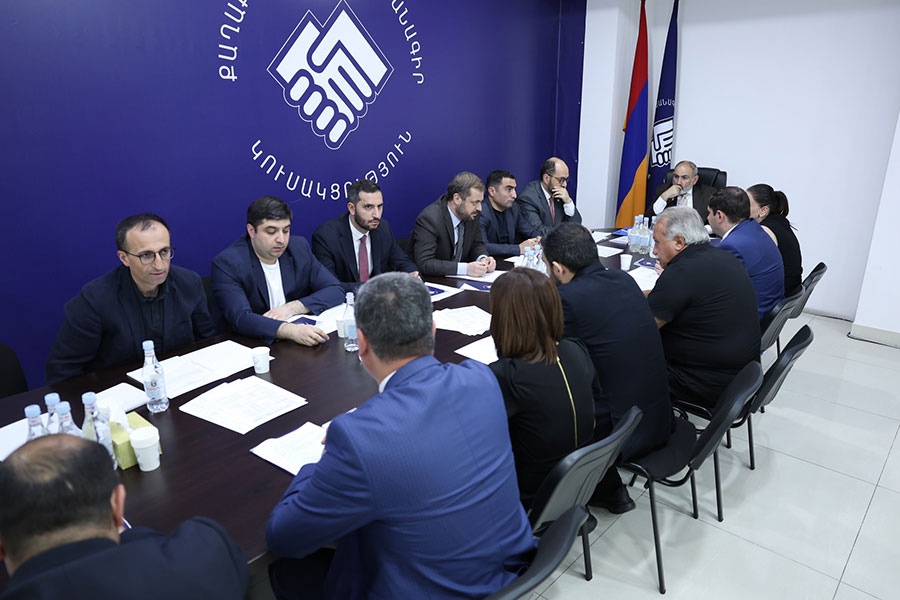Law-enforcement authorities have reportedly a launched a criminal investigation into financial irregularities allegedly committed by Armenia’s ruling Civil Contract party.
The investigation stems from mandatory audits of Civil Contract’s 2022 and 2023 financial reports that were conducted by a private firm, Trust Audit. The audits concluded that the party led by Prime Minister Nikol Pashinian exceeded a legal limit on donations and failed to return the surplus funding to donors or contribute it to the state in another breach of Armenian law.
They found that the party also violated the law by accepting money from anonymous donors as well as businesses and other entities. Those donations too should be handed back or transferred to the state treasury. Civil Contract did not do that either, according to Trust Audit.
The state Commission on the Prevention of Corruption looked into the findings of the 2022 audit before asking the Office of the Prosecutor-General to launch criminal proceedings. A commission spokesperson told RFE/RL’s Armenian Service on Wednesday that the prosecutors have instructed another law-enforcement agency, the Anti-Corruption Committee, to open a criminal case.
Read also
The commission is also examining the results of the 2023 audit. It will decide later this year whether to recommend a criminal inquiry into them as well.
Vahagn Aleksanian, Civil Contract’s deputy chairman, downplayed these irregularities last month, saying that they are mere “technical” errors that can be corrected “very quickly.”
Earlier this year, two Armenian media outlets reported that ahead of local elections held in 2023 and 2022 Pashinian’s party received lavish and dubious campaign donations on behalf of scores of mostly low-income individuals unaware of them.
The party claimed to have raised 506.5 million drams ($1.3 million) in the run-up to last September’s municipal elections in Yerevan. The investigative publication Infocom.am revealed in January that the bulk of that sum was generated by donations ranging from 1 million to 2.5 million drams, the maximum amount of a campaign contribution allowed by the law. Their nominal contributors included presumably non-rich people, linked to senior government officials and businesspeople, as well as ordinary residents of Yerevan who could hardly afford such payments.
For its part, Civilnet reported in March that ahead of local elections held in other parts of Armenia in 2022, Civil Contract received 170 million drams ($435,000) from 140 persons, the vast majority of them its own election candidates. The media outlet randomly interviewed 31 such individuals and found that 15 of them categorically deny making any campaign donations.
“Others avoided answering or said they do not remember, and some said they are too busy to answer the question,” it said.
Critics suggested that Civil Contract arranged these shady payments to circumvent the cap on political donations. Pashinian flatly denied this. He claimed that the payments made on behalf of third persons unaware of them resulted from human or organizational “errors.”























































